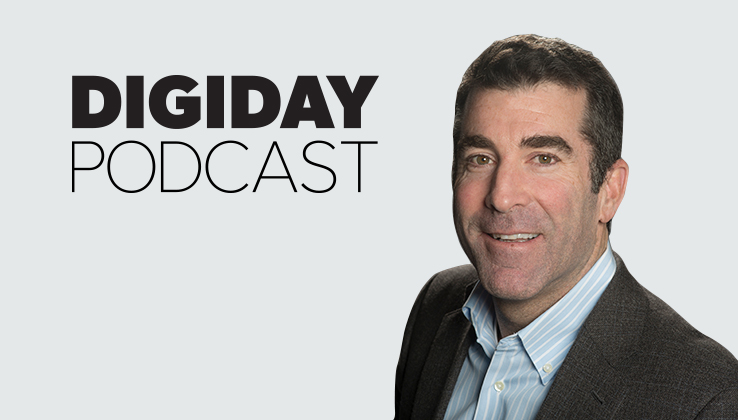Secure your place at the Digiday Publishing Summit in Vail, March 23-25
Washington Post’s Jed Hartman: The industry needs to stop whining about the duopoly

Subscribe: iTunes | Stitcher | RSS
While Google and Facebook hamper publishers’ efforts to grow digital ad dollars, The Washington Post CRO Jed Hartman said on this week’s Digiday Podcast that publishers need to figure out their unique value and stop “whining about the platforms.”
“I would rather find our unique selling proposition and exploit that as best as possible, partner when necessary and go on our own other times,” he said. “[The duopoly is] good at selling advertising. We will bring a different value.”
Below are highlights, edited for clarity.
The Jeff Bezos effect
“There is an experimentation culture. You do everything you can to make that experiment work. Jeff [Bezos] is really involved, and he’s the chief inspiration and innovation officer for focus on product and a frictionless customer experience. Another Jeff-ism is, if it’s core to your business, why would we outsource [our CMS]? Google doesn’t do it.”
The paywall, not Trump, is behind the subscription growth
“Trump has made politics pop culture, whether you love or hate his tweets and policy. But he’s fascinating. It brings more people to the Post because it’s a part of our DNA. But we saw a surge in subscriptions after we tightened our paywall to three [free] articles a month. Fake news has made people want to go to brands, which they trust will fact-check. But if you put up a paywall, where is the user going to go? They trust you. So they are more likely to pay you and drive your subscription business.”
Building a CMS for the Post
“We built a CMS for our business because there was no CMS that worked for us. Not many publishers invest deeply, so why would the platforms invest to make it the best? So we built a platform called Arc. And we like it, so maybe others will like this. Many other publishers use this. It’s a legitimate revenue stream right now.”
Competing with the platforms
“The pendulum swung massively to audience because technology allowed for that. I feel a swing back to quality, fueled by the conversation around brand safety, ad fraud, bots and trust. But we won’t see that in the numbers for a very long time, if ever. The convenience of pushing a button and reaching your audience to buy Facebook or Google is very appealing. But there’s an enormous global ad market. There’s a lot of money for great companies if they have a unique value that is not commoditized.”
More in Media

The case for and against publisher content marketplaces
The debate isn’t whether publishers want marketplaces. It’s whether the economics support them.

Urban Outfitters shifts its influencer strategy from reach to participation
Me@UO is Urban Outfitters’ new creator program leverage micro-creators with smaller, engaged communities that are passionate about the brand.

Media Briefing: Without transparency, publishers can’t tell if Google’s Preferred Sources feature benefits them
Six months in, Google’s Preferred Sources promises loyalty-driven visibility, but leaves publishers guessing at the traffic impact.





